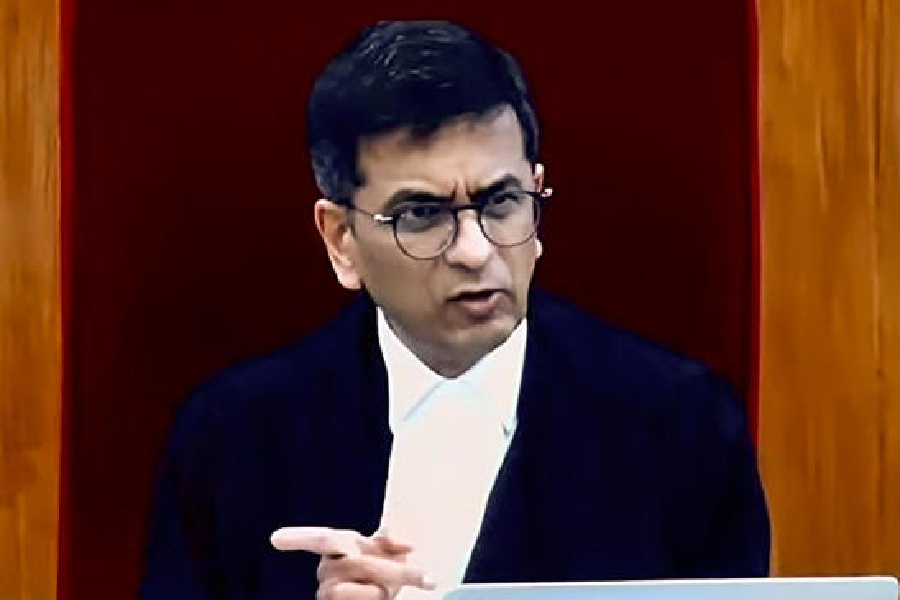The Supreme Court on Wednesday indicated that it would hear the Centre’s stand on pleas regarding criminalising marital rape.
Neither under the old Indian Penal Code nor under the new Bharatiya Nyaya Sanhita, 2023, that has replaced the IPC is marital rape a criminal offence. The BNS has even provided immunity from prosecution to a husband accused of raping his wife who is above 18 years.
The apex court will hear the oral arguments of the Centre if the government does not want to file a counter-affidavit to the batch of appeals seeking criminalisation of marital rape and the removal of the immunity to husbands under the BNS.
According to Exception 2 under Section 63 of the BNS (IPC 375 was the corresponding provision), “sexual intercourse or sexual acts by a man with his own wife, the wife not being under eighteen years of age, is not rape”.
On Wednesday, the bench headed by Chief Justice of India D.Y. Chandrachud did not announce any specific date for the hearing of the matter, but said: “Let the central government argue on law if they don’t want to file a counter.”
The bench, which included Justice J.B. Pardiwala and Justice Manoj Misra, made the observation after senior advocate Indira Jaising had during the morning mentioning time sought early listing of the matter.
Another counsel complained that the central government had so far not even filed its counter-affidavit, prompting the bench to say that it would proceed with the oral arguments on the question of law raised in the petitions.
In January last year, the Centre had told the Supreme Court that making marital rape a criminal offence would have both social and legal implications, and sought time to place on record its views and inputs from the states and Union Territories.
Solicitor-general Tushar Mehta had told a bench headed by the CJI that “apart from legal ramifications, the issue has social ramifications”, and said the Centre had sought the views of the states and UTs. Mehta had sought time from the court for filing the
Centre’s response.
At that time the bench, which included Justice P.S. Narasimha and Justice J.B. Pardiwala, had asked the Union government to file its counter-affidavit by February 15, 2023, but the Centre has not done so till date.
The Centre had issued the notification bringing into force the three new laws — the BNS that replaced the IPC, BNSS that replaced the CrPC, and the BSA that replaced the Indian Evidence Act. It, however, chose to retain the provision relating to “marital rape”.
The petitions and cross-petitions have come up before the apex court following a split verdict on May 11 by a Delhi High Court division bench of Justice Rajiv Shakdher and Justice C. Hari Shankar on the constitutional validity of Section 63 of the BNS (IPC 375). The matter had been referred to the top court for an authoritative pronouncement.
While Justice Shakdher ruled that the provision was unconstitutional, Justice Hari Shankar differed with him and held the impugned provision as being constitutionally valid.
Some men’s groups and individuals led by advocate Vivek Narayan have opposed any move to make marital rape a criminal offence. On the other hand, Section 63 has been challenged by various organisations such as the All India Democratic Women’s Association and Youth for Equality. They have challenged the constitutional validity of the explanation carved out under IPC Section 375 on the ground that it is a violation of Article 14 (right to equality), 19 (freedom of speech and expression) and 21 (life and personal liberty).










